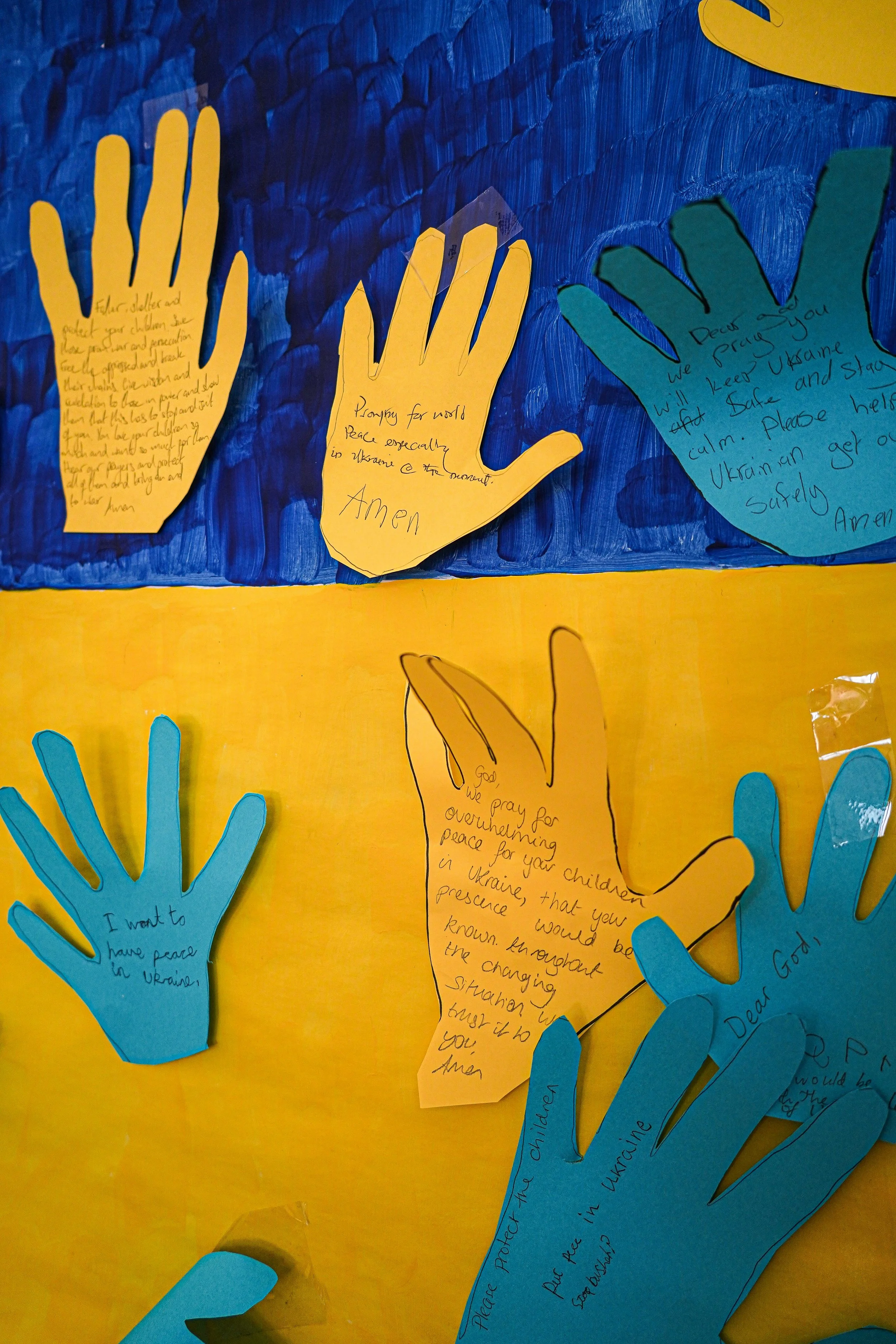The Importance of Supporting Children in Poverty in Ukraine
The Importance of Supporting Children in Poverty in Ukraine
The Importance of Supporting Children in Poverty in Ukraine
The war in Ukraine has captured headlines for years, but behind the images of bombed cities and shifting battle lines are millions of children whose lives have been turned upside down. For them, the conflict is not politics — it is hunger, displacement, trauma, and poverty. Supporting children in Ukraine is not just about relief in the moment. It is about protecting futures, restoring hope, and living out the call of Christ to love the least of these.
Psalm 82:3–4 commands us: “Defend the weak and the fatherless; uphold the cause of the poor and the oppressed. Rescue the weak and the needy; deliver them from the hand of the wicked.” Ukraine’s children embody the weak and oppressed today, and the Church is called to defend and rescue them with compassion and action.
The War’s Impact on Children
Before the war, Ukraine was already a nation struggling with poverty in some regions, especially among rural families. But since the conflict began, the scale of child suffering has multiplied. Millions of children have been displaced within the country or forced to flee as refugees. Many have lost parents, homes, or access to school.
For children, poverty in wartime is not just about lack of money — it is about survival. They face hunger as supply chains collapse, cold as infrastructure fails, and fear as bombs fall. In refugee camps or temporary shelters, they may lack the stability of education, healthcare, or even safe places to play.
Jeremiah’s lament in Lamentations 5:3–5 feels eerily current: “We have become fatherless, our mothers are widows. We must buy the water we drink; our wood can be had only at a price. Those who pursue us are at our heels; we are weary and find no rest.” Ukraine’s children today live this reality.
Poverty Beyond Borders
One of the challenges of the war is that child poverty in Ukraine does not remain confined within its borders. Millions of refugees have fled to neighboring countries, bringing with them the same struggles of hunger, trauma, and instability. Poverty has become portable, following families wherever they go.
Yet this mobility also presents an opportunity. Churches across Europe have opened their doors to refugee families, offering shelter, food, and community. Sponsorship and Christian giving reach not only children still inside Ukraine but also those scattered across the continent. In this way, the Body of Christ demonstrates its global unity — one Church, one family, responding to children wherever they are.
The Role of Education
For children in Ukraine, education is one of the first casualties of war. Schools have been destroyed, teachers displaced, and classrooms disrupted by shelling. Even when online learning is possible, many families lack internet access or reliable electricity.
Education is more than learning facts — it is stability, safety, and hope for the future. Without it, children risk becoming a “lost generation.” Sponsorship and Christian organizations provide critical support by funding makeshift classrooms, providing school supplies, and paying teachers in refugee settings.
Proverbs 22:6 reminds us: “Start children off on the way they should go, and even when they are old they will not turn from it.” Supporting education in Ukraine is a way of starting children off on a path of dignity and opportunity, even amid war.
Trauma and Healing
Beyond material needs, children in Ukraine carry deep emotional scars. Many have seen violence firsthand, lost loved ones, or been forced to leave their homes overnight. Trauma of this kind can last a lifetime if unaddressed.
Here the Gospel brings unique hope. Jesus declared in Luke 4:18, “He has sent me to bind up the brokenhearted, to proclaim freedom for the captives and release from darkness for the prisoners.” Faith communities in Ukraine and across Europe are providing counseling, safe spaces, and pastoral care for children. Simple things — a listening ear, a safe classroom, a sponsor’s letter reminding them they are loved — become powerful tools of healing.
Why the Church Must Respond
In times of war, governments focus on military and political priorities. Humanitarian organizations step in, but their reach is limited. The Church has a unique calling to serve not only material needs but also spiritual ones. We bring not only bread but also the Bread of Life (John 6:35).
Supporting children in Ukraine is not optional for the Body of Christ. It is a Gospel mandate. Jesus said in Matthew 25:40, “Truly I tell you, whatever you did for one of the least of these brothers and sisters of mine, you did for me.” To feed a hungry Ukrainian child, to clothe them, to sponsor their education, is to serve Christ Himself.
Why Ukraine Matters
The crisis in Ukraine is not only a political conflict — it is a spiritual and humanitarian emergency. Millions of children are caught in the crossfire, suffering from hunger, displacement, and trauma. Supporting them is not only charity but obedience to Christ’s command to love the least of these.
Ukraine matters because its children matter. Each one is made in the image of God, carrying potential and purpose. Sponsorship ensures that they do not become a lost generation but a generation of hope. By supporting children in Ukraine, we declare that poverty and war will not have the final word. Christ will.
In a time when darkness seems overwhelming, the Church’s response can be a beacon of light. Every act of giving, every prayer, every sponsorship says to a child: “You are not forgotten. You are loved. God has a plan for you.”

